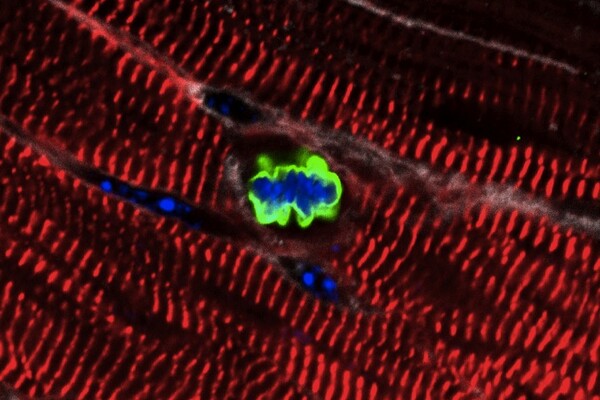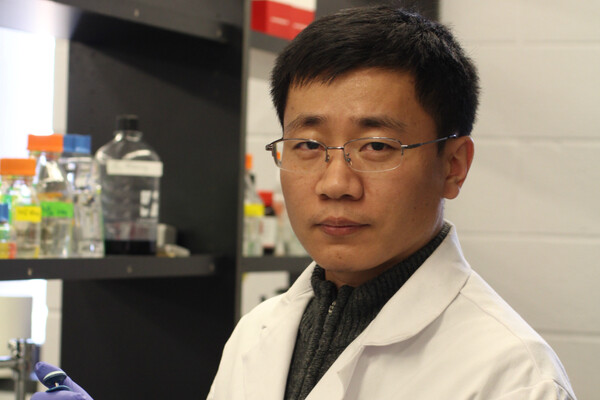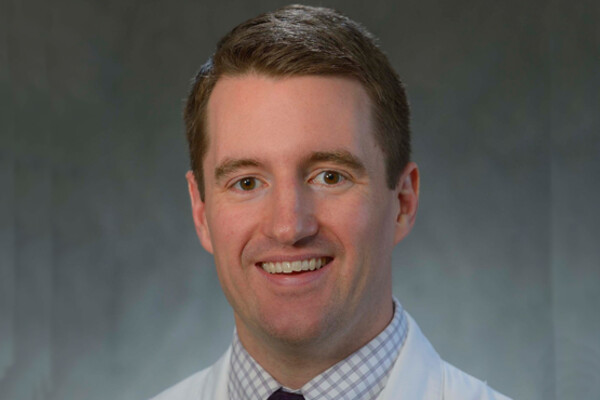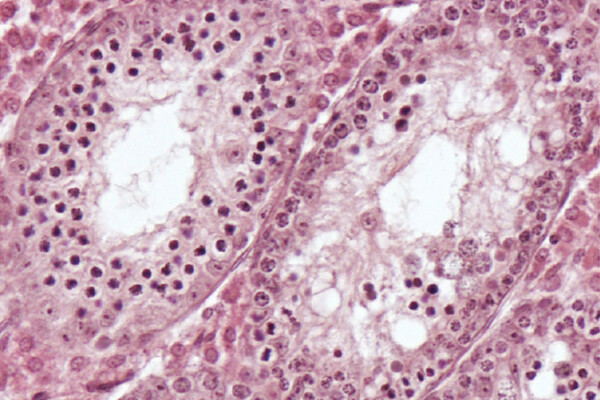5/18
Perelman School of Medicine
Penn Medicine Researchers Pinpoint Potential New Drug Target for Protection against Certain Neurodegenerative Diseases
Penn Medicine researchers have discovered that hypermethylation - the epigenetic ability to turn down or turn off a bad gene implicated in 10 to 30 percent of patients with Amyotrophic Lateral Sclerosis (ALS) and Frontotemporal Degeneration (FTD) - serves as a protective barrier inhibiting the development of these diseases. Their work, published this month in Neurology, may suggest a neuroprotective target for drug discovery efforts.
Penn Medicine Study Finds Being Near Greened Vacant Lots Lowers Heart Rates
Greening vacant lots may be associated with biologic reductions in stress, according to a new study from the Perelman School of Medicine at the University of Pennsylvania. Residents who walked near newly greened vacant lots had significantly lower heart rates compared to walking near a blighted, or neglected, vacant lot.
Penn Researchers Describe New Approach to Promote Regeneration of Heart Tissue
The heart tissue of mammals has limited capacity to regenerate after an injury such as a heart attack, in part due to the inability to reactivate a cardiac muscle cell and proliferation program. Recent studies have indicated a low level of cardiac muscle cell (cardiomyocytes) proliferation in adult mammals, but it is insufficient to repair damaged hearts.
Penn Dental Medicine’s Lizeng Gao Wins 2015 IADR Innovation in Oral Care Award
Lizeng Gao, a postdoctoral researcher in the University of Pennsylvania School of Dental Medicine, has won a 2015 International Association for Dental Research Innovation in Oral C
Botswana-UPenn Partnership Teams up with Microsoft and Partners to Launch Telemedicine Service over TV White Spaces Network
The Botswana-UPenn Partnership (BUP) is collaborating with Microsoft, the Botswana Innovation Hub, and other global partners to launch the first telemedicine service in Africa using TV white spaces to bring internet connectivity to hospitals and clinics across rural areas of Botswana.
Penn Medicine Immunotherapy Pioneer Carl June, MD, Awarded 2015 Paul Ehrlich and Ludwig Darmstaedter Prize
University of Pennsylvania cancer and HIV expert Carl June, MD, has been named one of two recipients of the 2015 Paul Ehrlich and Ludwig Darmstaedter Prize for his outstanding work in cancer immunotherapy.
Two Penn Medicine Gene Therapy Researchers Receive Pennsylvania Bio Awards
Two researchers from the Perelman School of Medicine at the University of Pennsylvaniawill be honored for their contributions for the burgeoning field of gene therapy by Pennsylvania Bio at their annual dinner this week. Pennsylvania Bio is the statewide bioscience trade organization which works to make the Keystone State a life sciences hub by creating an environment which cultivates progress and success.
Penn Medicine Analysis Shows that One-Third of Americans Do Not Have Access to Stroke Center Within One Hour
Stroke is one of the leading causes of death and disability in the United States, but access to rapid EMS care and appropriate stroke care centers with the ability to deliver acute stroke therapies can drastically mitigate the debilitating effects of a stroke. A population-based approach to health planning would prevent disparities in access to specialized stroke care, says new Penn Medicine research.
Penn Medicine: Gorilla Origins of the Last Two AIDS Virus Lineages Confirmed
Two of the four known groups of human AIDS viruses (HIV-1 groups O and P) have originated in western lowland gorillas, according to an international team of scientists from the Perelman School of Medicine at the University of Pennsylvania, the University of Montpellier, the University of Edinburgh, and others.
Penn Scientists Describe the Function of an Enzyme Critical to Male Fertility
Researchers are one step closer to unraveling the extraordinarily complex series of processes that lead to an event crucial to human reproduction: the creation of sperm.
In the News
What’s going on with tranq?
Jeanmarie Perron of the Perelman School of Medicine says that the appearance and progression of skin ulcers and tissue loss on xylazine users is different than with other intravenous drugs.
FULL STORY →
It’s time to end the Medicare-Medicaid merry-go-round
In an opinion essay, Rachel M. Werner of the Leonard Davis Institute, Wharton School, and Perelman School of Medicine says that Medicare and Medicaid fail to integrate coverage and coordinate care across their two plans.
FULL STORY →
Inside Penn’s transfer center
Penn Medicine’s transfer command center gets patients from affiliated hospitals and hospitals outside Philadelphia to specialized care that can save lives, with comments from CEO Kevin Mahoney.
FULL STORY →
Operating rooms are major sources of greenhouse gasses. Penn is eliminating a form of anesthesia that hangs in the air for more than a decade after use
Penn Medicine is phasing out the anesthesia desflurane at four of its six hospitals to eliminate harmful greenhouse gases, with remarks from Greg Evans.
FULL STORY →
Broad Street runners from Penn are racing with gyroscopes to study the Achilles tendon
Casey Jo Humbyrd and Josh Baxter of the Perelman School of Medicine and colleagues will track data from running the Broad Street Run to understand how a healthy Achilles tendon functions.
FULL STORY →







